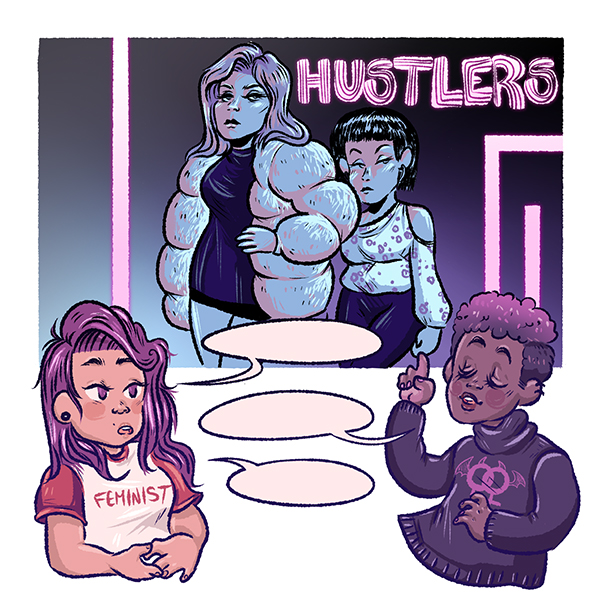When it hits theaters Sept. 13, star-studded, female-forward film “Hustlers” could be the pinnacle of what has been labeled “hot girl summer.”
Inspired by a New York Magazine article, the Robin Hood tale follows a group of female strip club employees who reclaim their power from wealthy Wall Street clients by stealing their money and committing crimes. The film examines the intersectionality of sex work, family ties and economic stability.
Although “Hustlers” is advertised as a story about female empowerment, members of the UT community voiced mixed opinions about the upcoming release.
Public health sophomore Lal Lawmi said she is excited to see big-name actresses Jennifer Lopez and Constance Wu, who star as Ramona and Destiny. In the film, Ramona, the matriarchal figure of the group, takes the inexperienced Destiny under her wing and introduces her to the other strip club employees in their found family.
However, Lawmi said she thinks the film’s themes could negatively influence younger audiences. By showing these women earning thousands of dollars as strippers, Lawmi said the film makes a dangerous lifestyle seem glamorous and attainable.
“Obviously, life can be hard, but stripping is not the only way to make life better,” Lawmi said.
Mary Beltrán, director of the Latino media arts and studies program, said it is important to evaluate the complexity of female characters in films and the complicated decisions made by people who are employed as strippers.
“It certainly is possible that women that are strippers or prostitutes can be feminists and can be empowered,” Beltrán said.
When discussing the film, Beltrán said audiences shouldn’t assume that people who work as strippers are oppressed — instead they pursue these professions for a variety of complicated reasons, including the need to make money.
Beltrán compared “Hustlers” to the 1983 blockbuster “Flashdance.” Alex Owens, the lead character in “Flashdance,” was also an exotic dancer, but earned money as a stripper and welder to achieve her dream of becoming a classical dancer.
There are fantasies attached to dance. Women can get noticed and become famous as dancers, Beltrán said.
Radio-television-film sophomore Hunter Lyke-Ho-Gland said he thinks the film’s concept is interesting because it plays against stereotypes.
“You have characters that are usually minor roles in films or usually very victimized roles and have them (be) very central and powerful characters,” Lyke-Ho-Gland said.
Because the film is about strip club employees, Lyke-Ho-Gland said some audiences may find it controversial. However, the film pushes some social boundaries by normalizing the characters’ profession.
Valarie Gold, radio-television-film graduate student, said the film likely won’t dive into the negative elements of stripping but will instead focus on the alluring lifestyle associated with the profession.
Gold said the purpose of this film is to turn a profit for Hollywood producers. Because the film is an escapist action movie, she said it likely will not have an impact on audiences’ perception of sex workers.
“If you really want to make a difference and make an impact and talk about the issue in a serious scenario, give it a more serious tone,” Gold said.





















